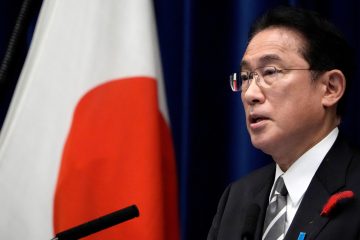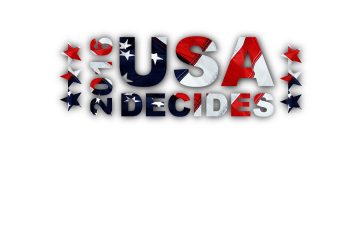
How we correctly predicted a Trump victory
The US election result came as an absolute shock to many, but it was the pollsters that took the biggest hit. The major poll-based forecasts, a lot of models, the prediction markets, even the superforecaster crowd all got it wrong. They estimated high probabilities for a Clinton victory, even though some were more careful than others in claiming that the race would be very tight. Our prediction survey, however, was spot on thanks to the method we used for Oraclum Intelligence Systems, a start-up developed out of our academic work. We predicted a Trump victory, and we called all the major swing states in his favour: Pennsylvania (which no single pollster gave to him), Florida, North Carolina, and Ohio. We gave Virginia, Nevada, Colorado, and …
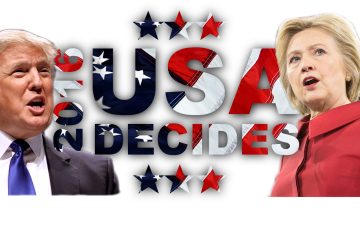
A political earthquake with few US precedents
The election of Donald Trump is a political earthquake with few direct precedents. Andrew Jackson’s election as a populist in 1832 is one possibility. As a novice to elected office, President Eisenhower’s election in 1952 has that in common but little else. Ideologically, Trump’s radical reforms permit a loose analogy with Ronald Reagan’s agenda in 1980, but President Reagan was an outward-looking and internationally engaged White House incumbent. Trump is decidedly inward looking and isolationist. His conversion into a normal presidential candidate has been remarkable. Trump’s intelligence and knowledge of the world of social media and TV entertainment gave him a major advantage during the Republican presidential primaries and then the election campaign. Both in the state primary appearances and …

What to make of the US Election Forecasts
The majority of forecasts point to Hilary Clinton winning tomorrow’s US presidential election. Several of the poll, market and expert forecasts with probabilities for who will win are helpfully summarised by the New York Times here. The polls-based predictions are all, apart from one, pretty confident that Clinton will win. At the time of writing, Drew Linzer’s model at Daily Kos puts the probability of a Clinton win at 87%, HuffPost has 98% and Sam Wang at the Princeton Election Consortium estimate is as high as 99%. The New York Times’ own model is slightly less confident, on 84%. The exception is Nate Silver’s FiveThirtyEight model which puts Clinton’s chances at just 67%. The lower probability for Clinton in the FiveThirtyEight model …

America’s Other Vote: Cannabis Legalisation on the Ballot
Casual observers and the millions who have tuned in to watch the Presidential debates might be unaware of the other important vote taking place tomorrow: cannabis legalisation. While the omission of any question on climate change during the three Presidential debates garnered widespread attention, the legislation of this soft drug was the second major absentee in the televised clash between Hilary Clinton and Donald Trump. On November 8th, US citizens will not only elect a new President; initiatives to legalise recreational cannabis are also on the ballot in five states. There is a good chance that disappointed Trump or Clinton supporters will be able to drown their sorrows with legal marijuana in California, Nevada, Massachusetts, Arizona and Maine. The map …

Trumped-up vs. Clintonesque: what text analysis can teach us about the US elections
The 2016 United States presidential election—or in John Oliver’s most recent definition: ‘lice-on-a-rat-on-a-horse-corpse-on-fire-2016’—has reached its final leg. As a political scientist and a computational text analyst, I cannot resist sharing my two cents on an election that has certainly broken a model or two. Following in the footsteps of two colleagues who recently produced two excellent articles (you can read them here and here), in this post I’d like to analyse a few examples of the exceptional language used in this elections cycle. Text analysis can help us understand two commonly held beliefs or facts (the distinction has become a bit blurred over the course of this year’s election cycle) about the US elections: Donald Trump is running a negative …
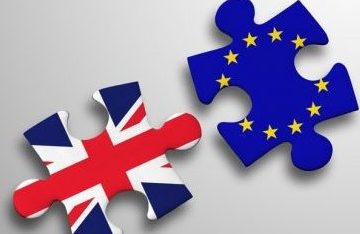
Brexit: after the posturing, the EEA?
When Britain will put forward its Brexit proposing in the spring of 2017, it should consider membership in a reformed European Economic Area, argues Michael Starks. Economic stability within a reformed EEA, which recognised the legitimate concerns of non-EU countries over open-ended migration from the EU, could provide either an interim or a permanent status for the UK in 2019. In 2017 the UK will put its opening Brexit proposal to the other 27 members of the European Union. On present evidence, the British government will ask for an agreement tailor-made for Britain, not something off-the-shelf. Theresa May, the prime minister, will look to forge a deal combining control on immigration numbers from EU countries whilst also maximising, sector by …
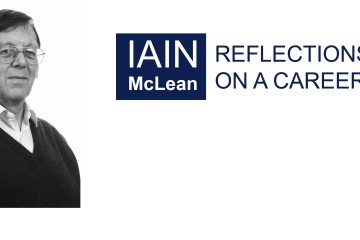
“Repeal of the Corn Laws: Lessons for 2016?”
Iain and I both spent a great deal of time researching on and writing about Britain’s Repeal of the Corn Laws in 1846 (McLean 2001; Schonhardt-Bailey 2006). The first question that comes to mind when one reflects on this fact is, why? More specifically, why would any modern political scientist find this specific episode in British history to be worthy of extensive academic study? As I write this, let me note that one of the lead articles in this week’s Economist draws upon the lessons of Repeal to explore the current challenges to free trade in America’s 2016 presidential campaign, namely that freer trade creates both winners and losers.[1] Of course, The Economist prides itself as originating in 1843, as …

Words that matter: What text analysis can tell us about the third presidential debate
The final Presidential debate of 2016 was as heated as the previous two—well demonstrated by the following name-calling exchange: CLINTON: …[Putin would] rather have a puppet as president of the United States. TRUMP: No puppet. No puppet. CLINTON: And it’s pretty clear… TRUMP: You’re the puppet! CLINTON: It’s pretty clear you won’t admit … TRUMP: No, you’re the puppet. It is easy to form our opinions of the debate and on the differences between the Presidential candidates on excerpts like this and memorable one-liners. But are small extracts representative of the debate as a whole? Moreover, how can we objectively analyse what was said, who got to say the most, and how the candidates differed in their responses? One approach is …

